Corbett Lab
We are a diverse team at the forefront of viral immunology, molecular virology, and protein engineering. Together, we use our expertise to inform vaccine development and therapeutic antibody discovery, particularly focused on pandemic preparedness.
651 Huntington Avenue
Building 2, Room 425
Boston, MA, 02115
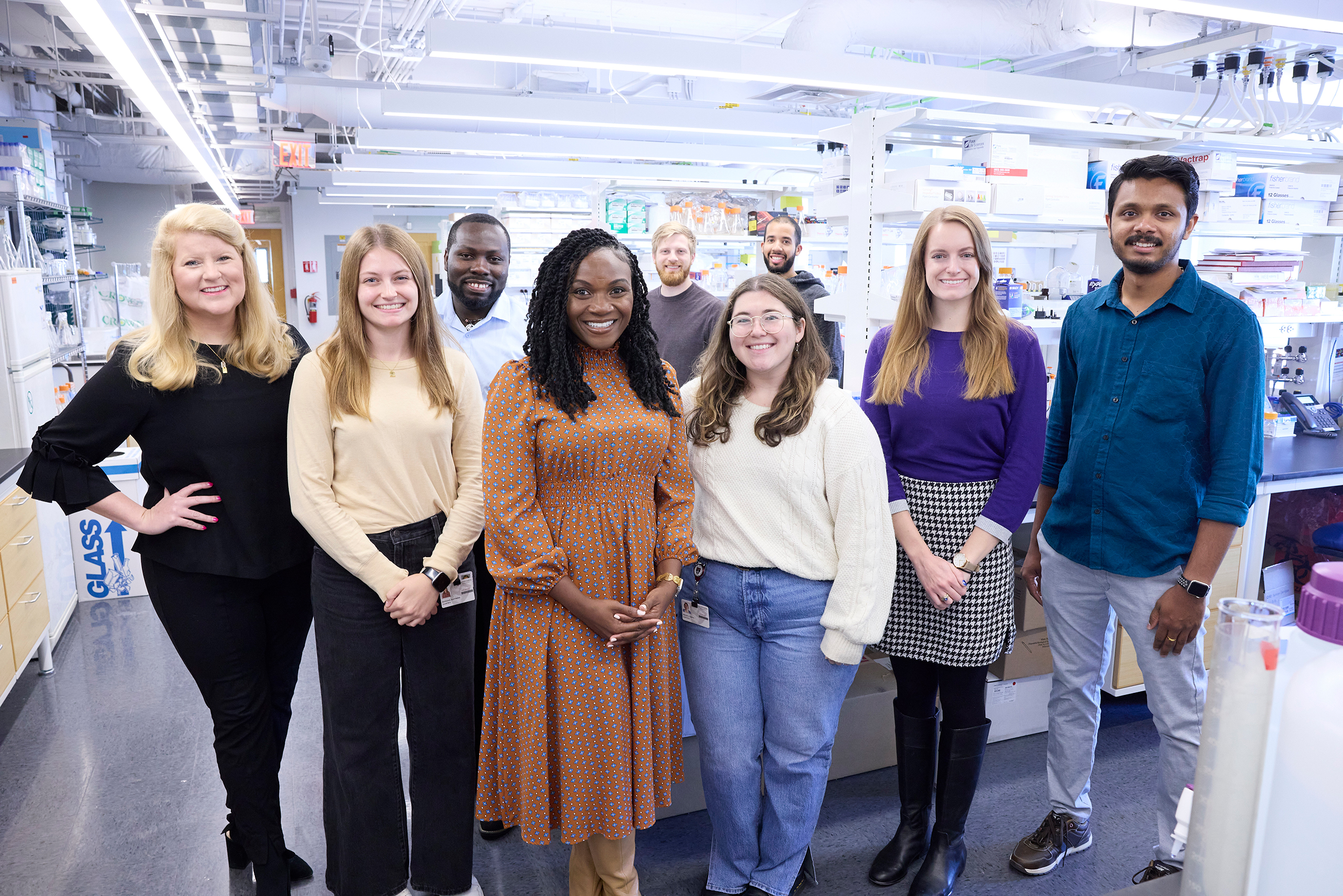
Our Impact: Innovating Infectious Disease Research
At the Corbett Lab we use our expertise to inform vaccine development and therapeutic antibody discovery for coronaviruses and other emerging and re-emerging viruses.
We aim to understand the immune landscape of viral surface proteins, decipher the influence of immune responses on the clinical outcome following natural viral infection, and translate our findings to rationally design and evaluate novel vaccine concepts.
Aiming to increase global pandemic preparedness, our research is not only innovative but also driven by a passion for public health impact.
Support Harvard Chan School
Every gift contributes to our mission of building a world where everyone can thrive. The Corbett Lab is developing vaccines to combat the most pressing viral threats and stay ahead of the next pandemic. To learn more about how you can support this work please contact Carter Brown at chbrown@hsph.harvard.edu

Our Research
Vaccine development and design
Design of spike-based vaccine antigens and nanoparticle vaccines towards eliciting robust cross-reactive immune responses.
Antigenic Landscape Analysis
Uncovering the antigenic landscape of endemic coronaviruses to decipher virus-host interactions, investigate viral entry, and better understand pathogenesis.
Flow Virometry
Development of flow virometry tools towards single virion understanding of coronavirus surface proteins and to characterize understudied viruses with pandemic potential.
Our Research Projects
SARS-CoV-2, the virus that causes COVID-19, represents the third coronavirus to emerge as a global health threat in the past two decades, along with SARS-CoV and Middle East respiratory syndrome coronavirus (MERS-CoV). With the expanding number of coronaviruses being discovered in reservoirs, emergence of novel coronaviruses into humans is imminent. Thus, coronaviruses that are closely related to MERS-CoV are still a pandemic threat. To that end, we are exploring the antigenic landscape of vaccine-induced immunity to MERS-CoV spike protein by defining mechanisms of action and protective capacity of B-cell and antibody responses that target non-classical areas of the spike protein. The goal is to understand which areas of the MERS-CoV spike protein are most optimal for eliciting robust, broad, and long-lasting immune responses. This research will lead to next-generation MERS-CoV vaccine designs that can be deployed shall a MERS-like outbreak occur.
There were four human coronaviruses, HKU1, 229E, NL63, and OC43, that circulate endemically causing relatively mild respiratory disease. During any given “flu season,” endemic human coronaviruses are responsible for up to 30% of common colds. The juxtaposition with SARS-CoV-2 as the fifth endemic coronavirus raises questions about endemic coronaviruses that were previously understudied. Pandemic preparedness led to the rapid development of highly effective COVID vaccines, and while we continue our pandemic preparedness work, we also explore the antigenic landscape of endemic coronaviruses towards “endemic preparedness.” We are dissecting the antigenic landscape of endemic coronaviruses by identifying and characterizing functional receptors, co-receptors, and attachment factors, deciphering the influence of immune responses on the clinical outcome following natural viral infection, isolating and characterizing monoclonal antibodies against endemic coronaviruses, and designing and evaluating vaccines that encompass endemic coronavirus antigens.
Universal coronavirus vaccines must be developed to protect against multiple coronavirus types. We are taking two simultaneous vaccine approaches to elicit broader immune responses. Firstly, as we determine which areas of coronaviruses spike proteins are most cross-reactive, we design spike-based vaccine antigens to target those areas. Secondly, we engineer nanoparticles to display multiple vaccine antigens. Nanoparticles enhance immune responses, facilitate optimal spatial organization for B-cell engagement, and allow for the display of different antigens in one vaccine. Following in vitro antigenic characterization, we evaluate our vaccines in mouse models to assess immune responses. Beyond use as vaccines, we use our rationally designed antigens and nanoparticles as tools for dissecting coronavirus immune responses and isolating novel monoclonal antibodies. Together, this work fuels our understanding of coronavirus viral immunology in a cycle that continuously produces new and improved vaccine concepts.

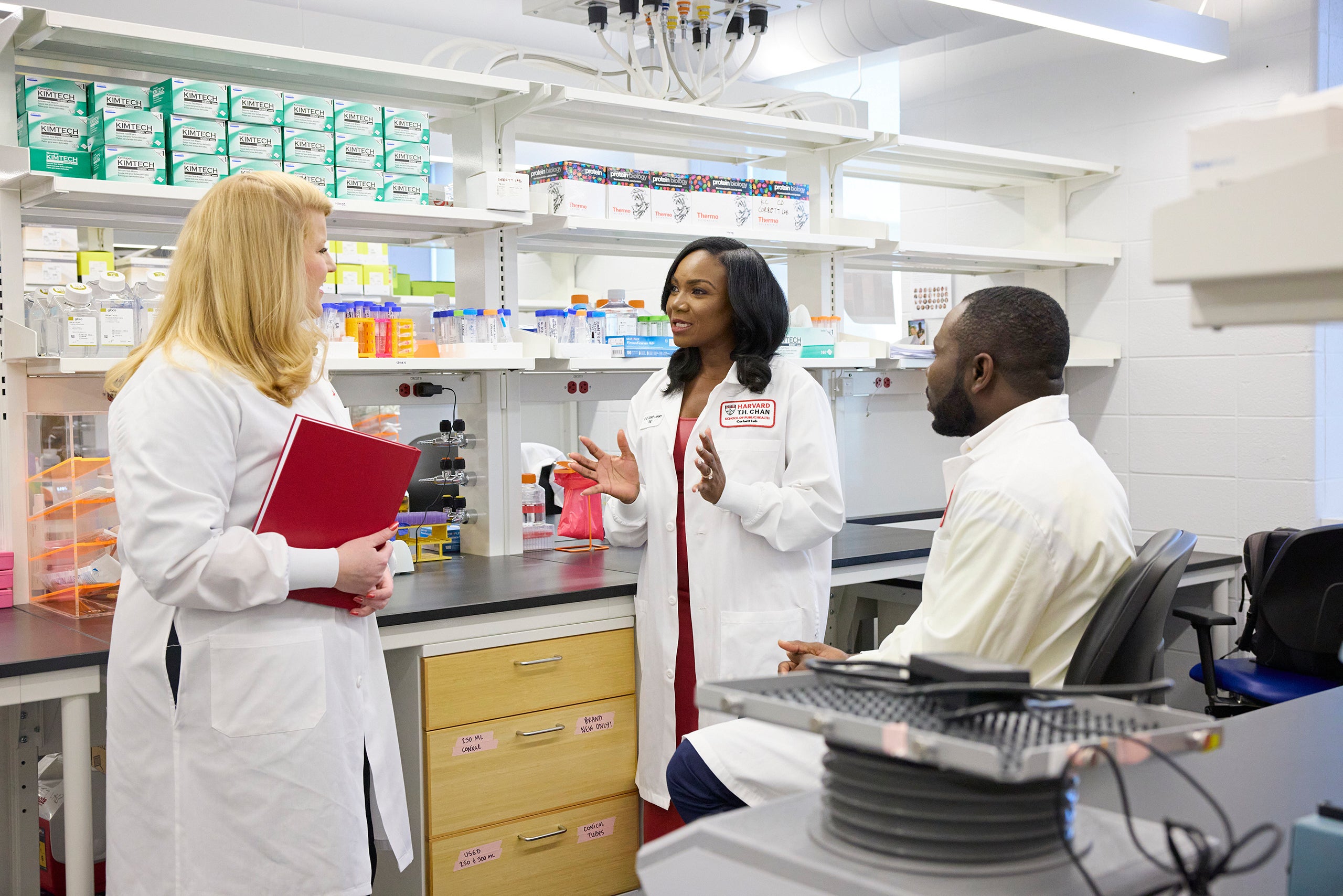
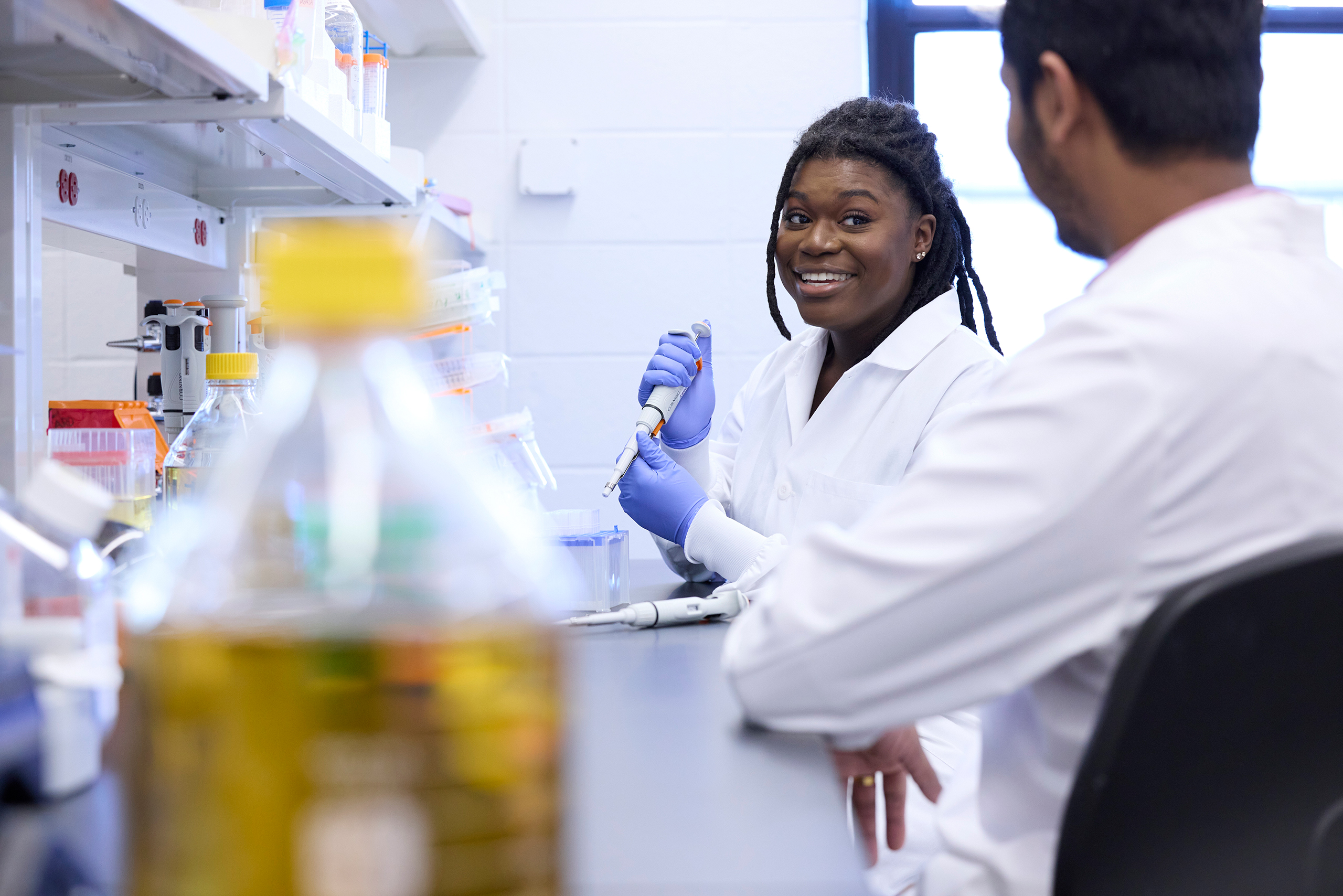
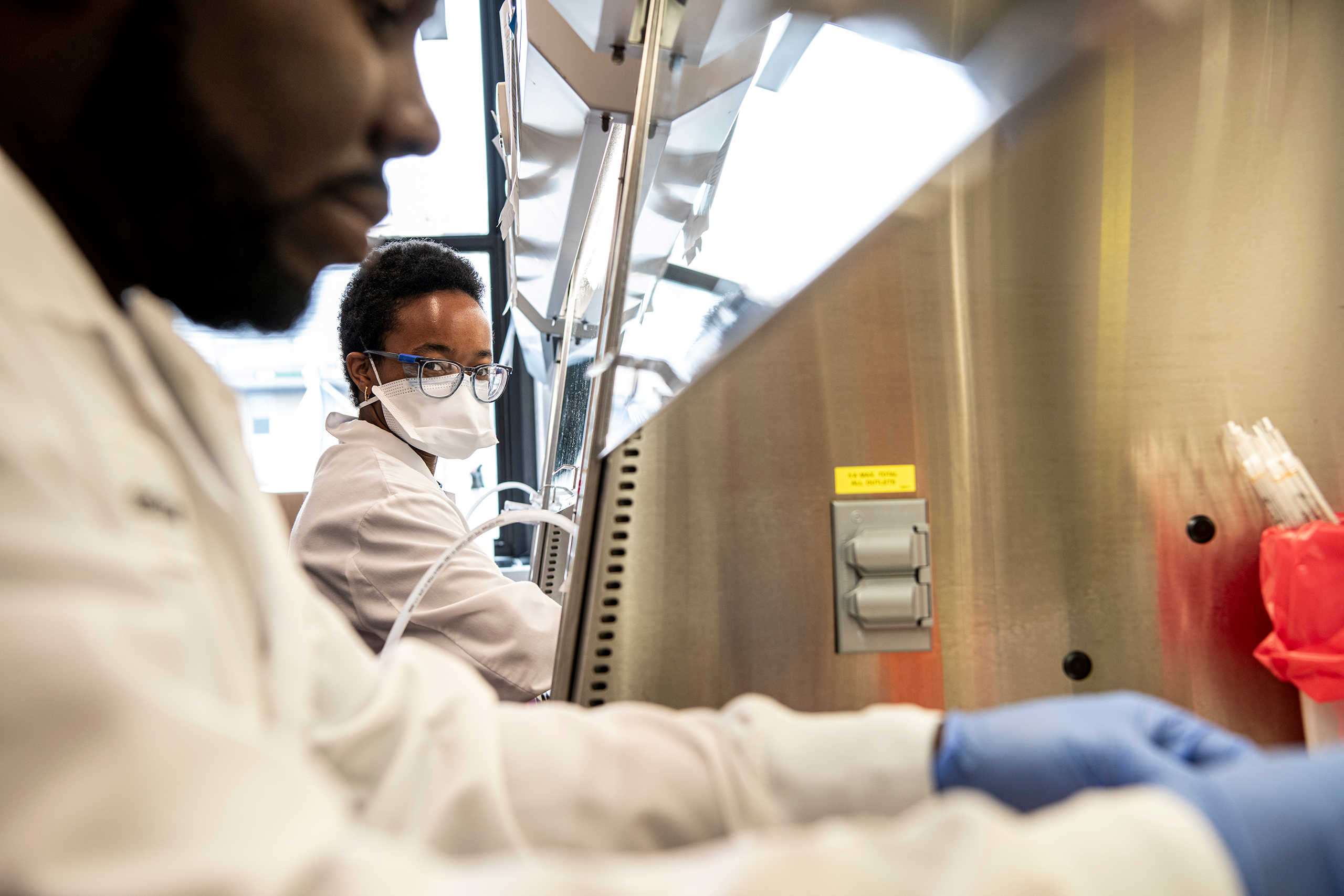
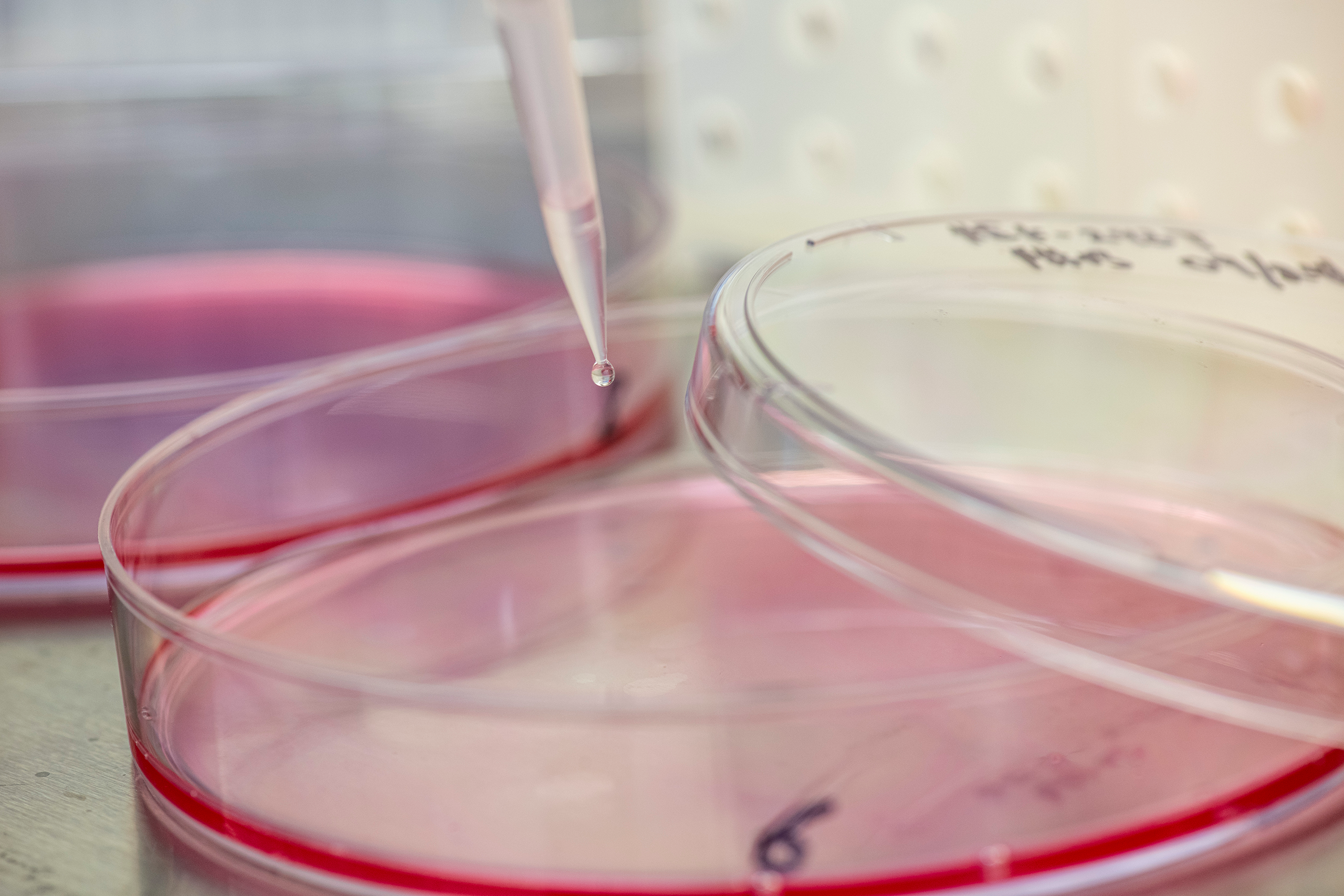
Publications highlights
Latest from the Corbett Lab


Endowed professorships awarded to two IID faculty members
IID is thrilled to announce the appointment of endowed professorships to faculty members Dr. Flaminia Catteruccia and Dr. Kizzmekia Corbett-Helaire, courtesy of generous philanthropic contributions.

Preparing for next pandemic requires more funding, better communication
Over the past few months, Harvard Chan faculty have been sharing evidence-based recommendations on urgent public health issues facing the next U.S. administration.


